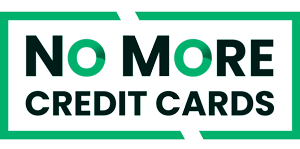How to Challenge Portfolio Recovery Debt Collectors
If you find yourself in the clutches of Portfolio Recovery debt collectors, it’s crucial to verify the legitimacy of their claims.
Complaints have flooded the Consumer Financial Protection Bureau (CFPB) for years, painting a concerning picture of Portfolio Recovery Associates, LLC, the largest debt collection company in America.
Whether you’re being pursued for a legitimate debt or facing illegal calls over a nonexistent one, you’re not alone in this battle. We’ll show you how to deal with the debt collector, challenge and dispute an invalid debt, and even provide you with a list of reputable debt relief, settlement and consolidation programs.
CFPB’s Action Against Portfolio Recovery Associates
The CFPB recently took action against Portfolio Recovery Associates due to alleged violations of debt collection laws. As of March 23rd, 2023, consumers could be entitled to over $12 million in restitution due to the company’s purportedly illegal debt collection practices.
This significant sum is destined for the CFPB’s victims relief fund, underscoring the severity of the allegations and indicating a continuation of questionable practices within the industry.
“The order requires Portfolio Recovery Associates to pay at least $12.18 million in redress to harmed consumers and a $12 million civil money penalty. It also imposes broad injunctive relief designed to prevent Portfolio Recovery Associates from violating the law in the future.” Source, CFPB, Portfolio Recovery Associates, LLC Lawsuit
How to Get Out of Debt Collection Accounts
If you’ve genuinely incurred credit card expenses but are unable to pay off the full amount, and now find yourself dealing with a third-party collection agency, there may still be an opportunity to settle the debt for less than the total owed.
Collection agencies, such as Portfolio Recovery debt collectors, often acquire delinquent credit card debts for a fraction of the original balance. In some cases, these debt collectors purchase the debt for as little as 10-20% of its original value.
You might be wondering how they can do this.
Here’s the process:
Once you cease making payments on your credit card debt, the original creditor eventually gives up on collection efforts and classifies the debt as “uncollectible.”
This debt is then categorized as a “bad debt,” allowing the original creditor to recover the funds through a tax credit, thereby offsetting their losses on their tax return.
This indirect mechanism enables creditors to recoup some of their losses from bad debts. However, financial institutions are savvy and seek to maximize their profits by selling these accounts to debt collectors. Enter Portfolio Recovery Solutions, one of the largest debt collection companies, which purchases these debts at a reduced price.
Why Portfolio Recovery Debt Collectors Get it Wrong So Often?
Given that debt collectors typically acquire delinquent credit card debt at significantly reduced prices, the transaction process is often swift. Creditors provide a list of debtors’ names, estimated owed amounts, and personal information. During the sale of these debts to collection agencies, there is typically no detailed review of paperwork, outstanding amounts, accrued late fees, or similar matters.
In reality, after the debt is transferred to collection agencies, documentation often goes missing, and the information becomes less accurate over time. Consequently, debts can be disputed, and often invalidated or settled for a considerably lower sum than the original owed amount. What was once a challenging situation for the consumer can, in many cases, turn into a blessing in disguise. Consumers often find themselves escaping high credit card debt by paying a fraction of the original balance. However, it’s worth noting that this process can negatively impact credit scores.
If you’re not well-versed in legal matters or simply prefer to avoid dealing with debt collectors, you might want to consider enlisting the services of one of the top 20 best debt relief companies available.
Accredited Debt Relief is another company known for having a high success rate in helping consumers resolve third-party debt collection accounts.
- Consider a Personal Loan or Debt Consolidation
- Settle Your Debt with a Top-Rated Debt Settlement Company
Portfolio Recovery Associates: A Brief Overview
Portfolio Recovery Associates, founded in 1996 by Steve Fredrickson and Kevin Stevenson, began as an enterprise seeking profit from consumers’ financial struggles. Over time, it has evolved into one of the nation’s largest third-party consumer debt collection agencies. The company specializes in acquiring delinquent credit card debt from various financial institutions, including industry giants such as Citibank, Bank of America, Dell Financial, GE Capital, Express, Gap, Lowe’s, Lord & Taylor, JC Penny, and Old Navy.
Today, Portfolio Recovery Associates not only holds the title of the nation’s largest third-party debt collection company but also operates as a subsidiary of the publicly-listed PRA Group (NASDAQ: PRAA).
A History Marred by Troubles
In September 2015, Portfolio Recovery Associates faced scrutiny from the CFPB, which ordered the company to pay over $27 million in consumer refunds and penalties for deceptive debt collection tactics.
The investigation uncovered a litany of infractions, including collecting unsubstantiated debt, filing misleading affidavits in debt-collection actions, and misrepresenting intentions regarding debt proof in cases of consumer disputes. The company was also accused of pursuing debts beyond the statute of limitations, misleading consumers into believing they were legally bound to repay them.
If you owe above $10,000 in credit cards and unsecured debt, consider one of the top debt relief, settlement and consolidation companies.
Is your debt invalid or inaccurate? Do you feel that you may not even owe it?
You can always dispute a debt on your own following these simple steps.
- Don’t Ignore It: When a debt collector contacts you regarding a debt, do not ignore or avoid them. Ignoring them won’t make the issue go away.
- Gather Information: Collect all relevant information and documentation related to the debt, including any letters or documents from the collector and proof that you don’t owe the debt.
- Record Collector’s Information: Get the debt collector’s name, address, and phone number. It’s essential to have this information for your records.
- Request Debt Details: Within the first five days of initial contact, the debt collector should provide details of the debt, including the amount owed and the creditor’s name. Make a note of this information.
- Request Credit Report: Immediately request a copy of your credit report from the three major credit reporting agencies (Experian, Equifax, TransUnion). This is your right under the Fair Credit Reporting Act (FCRA).
- Review Your Credit Report: Examine your credit report for any errors or inaccuracies related to the debt. Highlight any mistakes you find.
- Submit a Dispute: If you believe the debt is not valid, send a dispute letter to the collection agency. The letter should include your personal information, the amount of the debt, the creditor’s name, and a request that the debt not be reported to credit agencies until resolved.
- Use Validation Notice: Debt collectors are required to send a validation notice that includes information about the debt and your rights. If you receive one, review it carefully.
- Maintain Records: Keep copies of all correspondence with the debt collector, including letters, emails, and records of phone conversations. Note dates and details of your interactions.
- Check Your Credit Report Regularly: Periodically check your credit reports to ensure that any erroneous debt information has been corrected. If not, continue to dispute it.
The 2015 order imposed stringent provisions, prohibiting:
- Collecting debts without a reasonable basis
- Selling debt
- Threatening or filing collection lawsuits without the intent to prove the debt
- Filing false or misleading affidavits in debt-collection actions
- Making false or misleading representations
- Collecting or suing on debt outside the statute of limitations
- Recent Allegations and Violations
In the latest complaint, the CFPB alleges that Portfolio Recovery Associates violated multiple aspects of the 2015 order over a five-year period, engaging in deceptive conduct that contravenes the Fair Debt Collection Practices Act and the Consumer Financial Protection Act.
These violations include:
- Making representations about unsubstantiated debts
- Threatening consumers with potential legal actions and initiating debt collection lawsuits without providing required documentation
- Misrepresenting the timeline for providing certain documents
- Collecting on time-barred debt without making required disclosures
Suing to collect on time-barred debt
Additionally, Portfolio Recovery Associates faces allegations of multiple violations of the Fair Credit Reporting Act and its Regulation V, including:
- Failing to inform consumers about investigation outcomes
- Failing to resolve disputes promptly
- Conducting inadequate investigations, especially in cases of fraud or identity theft
Enforcement Action
Under the Consumer Financial Protection Act (CFPA), the CFPB possesses the authority to take action against entities that violate consumer financial laws, particularly those involved in unfair, deceptive, or abusive practices. In this case, Portfolio Recovery Associates stands accused of violating the 2015 order, the CFPA’s prohibition on deceptive conduct, the Fair Debt Collection Practices Act (FDCPA), the Fair Credit Reporting Act (FCRA), and Regulation V.
If the court approves the proposed order, Portfolio Recovery Associates would be required to:
- Provide redress to consumers by paying at least $12.18 million to those harmed by its illegal collection practices
- Implement measures to ensure proper documentation when collecting debts
- Enhance responses to consumers reporting fraudulent or incorrect debts
- Pay a $12 million penalty to the CFPB, contributing to the victims relief fund
The Path Ahead
While actions against Portfolio Recovery Associates await court approval, consumers who suspect fraudulent behavior or misleading debt collection practices should remain vigilant. If you are currently dealing with Portfolio Recovery Associates and believe you may qualify for restitution, maintaining communication with the agency is crucial.
The CFPB continues to serve as a vital resource for consumers grappling with debt collection challenges, offering guidance on safeguarding your legal rights and navigating your financial future. If you have concerns or wish to report violations, visit the CFPB’s website or contact them at (855) 411-CFPB (2372).
In conclusion, the pursuit of justice against Portfolio Recovery Associates underscores the importance of consumer protection within the debt collection industry. By holding companies accountable for their actions, we can strive for a fairer and more transparent financial landscape. Stay informed, stay vigilant, and safeguard your rights.



